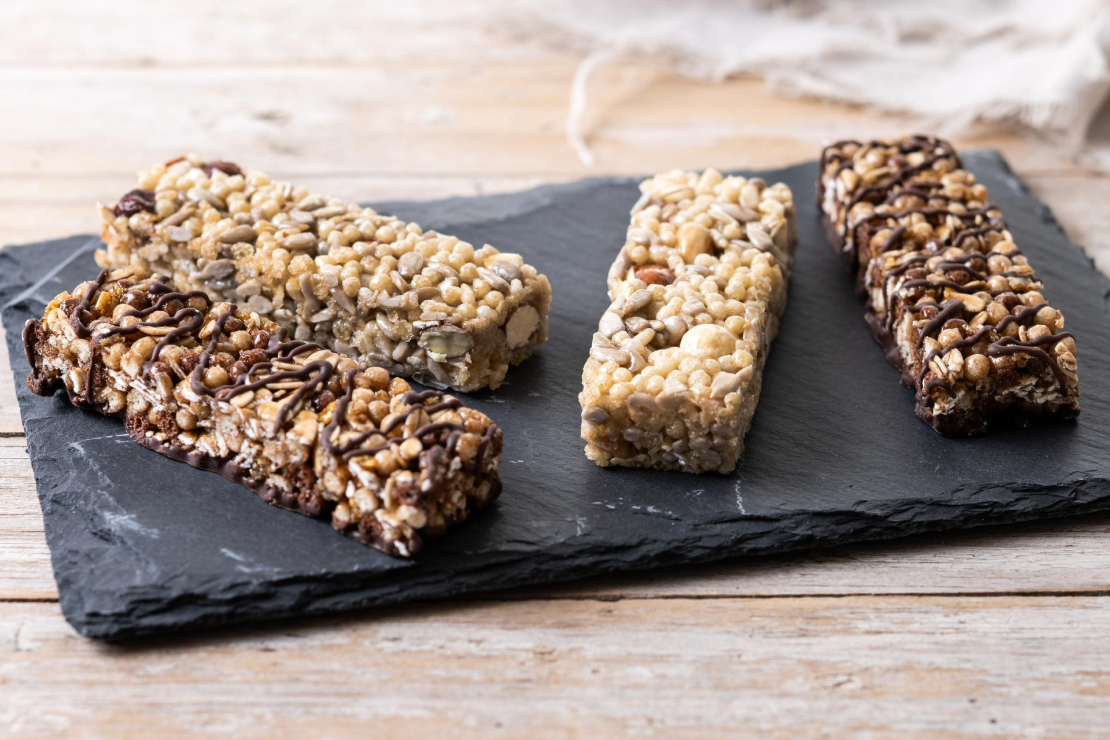Protein Farts: Why They Happen and How to Prevent Them
Discover the science behind protein-related gas, what causes the notorious smell, and practical ways to minimize digestive discomfort while maintaining your protein intake.

Table of Content
The Stinky Side Effect of Protein Power
If you're into fitness or trying to build muscle, protein supplements are likely a part of your daily routine. While these supplements are excellent for muscle growth and recovery, they often come with an embarrassing side effect that nobody likes to talk about – protein farts. This article will dive deep into why protein supplementation can lead to particularly smelly gas, and more importantly, what you can do about it.
Why Do Protein Farts Smell So Bad?
The science behind protein-related gas is fascinating and involves several complex digestive processes. When you consume protein, especially in large amounts or through supplements, your digestive system works overtime to break down these complex molecules. This breakdown process, combined with your gut bacteria's activity, creates a perfect storm for producing particularly pungent gas.
The intensity of the smell often increases with the amount of protein consumed and can be particularly noticeable when you first start a high-protein diet or begin using protein supplements. Your digestive system needs time to adjust to processing larger amounts of protein, and during this adaptation period, the smell can be especially potent.
Key Factors Behind Smelly Protein Gas:
- Sulfur-Containing Amino Acids: Proteins contain amino acids like methionine and cysteine, which are rich in sulfur. When broken down, these produce hydrogen sulfide gas, the primary culprit behind the intense smell.
- Gut Bacterial Fermentation: Undigested protein becomes food for gut bacteria, leading to gas production during fermentation. Different bacterial strains can produce varying types of gas.
- Digestive Enzyme Deficiency: Insufficient protein-digesting enzymes can lead to more undigested protein reaching the large intestine, where bacteria ferment it.
- Protein Source: Different protein sources (whey, casein, soy, pea) can affect gas production differently based on their amino acid profiles.
- Individual Gut Microbiome: Your unique gut bacteria composition influences how protein is processed and what types of gases are produced.
Common Triggers of Smelly Protein Farts
| Trigger | Why It Happens | Solution |
|---|---|---|
| Whey Protein | Lactose intolerance or sensitivity | Switch to plant-based alternatives |
| Excess Protein | Body can't process too much at once | Space out intake throughout the day |
| Poor Digestion | Lack of digestive enzymes | Add digestive enzyme supplements |
| Low Fiber | Gut microbiome imbalance | Increase fiber intake gradually |
Do Protein Farts Smell Like Eggs? (And Why)
The notorious "rotten egg" smell associated with protein farts isn't just your imagination. This distinct odor is directly related to hydrogen sulfide production in your gut. The similarity to egg smell is no coincidence - eggs are also rich in sulfur-containing compounds, particularly in their yolks.
When your body processes high-protein foods or supplements, the breakdown of sulfur-containing amino acids creates various sulfur compounds. This process is similar to what happens when eggs spoil, which is why the smells are so similar. The intensity can vary significantly from person to person, depending on factors like gut health, protein source, and individual metabolism.
Understanding the Egg-Like Smell:
- Hydrogen Sulfide Production: This gas is the same compound responsible for rotten egg smell and is produced when gut bacteria break down sulfur-containing amino acids
- Genetic Factors: Individual sensitivity to smell varies based on genetics and can affect both production and perception of the odor
- Concentration Levels: The amount of hydrogen sulfide produced can vary based on protein intake and digestive efficiency
- Additional Compounds: Other sulfur-containing gases like methanethiol and dimethyl sulfide contribute to the overall smell
- Timing Patterns: The smell is often strongest 1-2 hours after protein consumption, when digestion is most active
Are Protein Farts a Good Sign or Bad Sign?
While some gas is normal when increasing protein intake, excessive or persistent symptoms shouldn't be ignored. Here's how to interpret your body's signals:
Normal Adaptation Signs:
- Temporary increase in gas during first week
- Symptoms improve with time
- No other digestive issues
Warning Signs:
- Severe bloating or pain
- Persistent symptoms beyond 2 weeks
- Accompanied by other digestive issues
How to Prevent Gas from Protein Shakes
Prevention is better than cure when it comes to protein-related gas. The key lies in understanding how your body processes protein and making strategic adjustments to your supplement routine. By implementing the right combination of strategies, you can significantly reduce or even eliminate excessive gas production.
The timing and preparation of your protein shakes play crucial roles in how well your body processes them. Additionally, supporting your digestive system with the right supplements and maintaining proper hydration can make a substantial difference in reducing gas production.
Practical Prevention Tips:
- Choose the Right Protein:
- Opt for hydrolyzed whey or plant-based proteins
- Consider isolate forms over concentrates
- Look for products with added digestive enzymes
- Test different brands to find what works best for you
- Improve Digestion:
- Take probiotics specifically designed for protein digestion
- Include digestive enzymes like protease and lactase
- Consider adding ginger or peppermint to your shakes
- Maintain regular meal times to optimize enzyme production
- Timing Matters:
- Space protein intake throughout the day in smaller portions
- Avoid consuming protein right before bed
- Wait at least 2 hours between protein-heavy meals
- Time shakes around your workouts for better absorption
- Smart Combinations:
- Avoid mixing with gas-producing foods like dairy or artificial sweeteners
- Combine with digestive-friendly foods like banana or ginger
- Include fiber-rich foods gradually
- Consider blending with probiotics-rich ingredients
- Stay Hydrated:
- Drink plenty of water with protein supplements
- Aim for at least 8oz of water per scoop of protein
- Space out fluid intake throughout the day
- Monitor urine color to ensure proper hydration
How Long Does Protein Bloat Last?
Understanding the timeline of protein-related bloating is crucial for anyone starting or adjusting their protein supplementation routine. The duration and severity of bloating can vary significantly between individuals, depending on factors like gut health, protein type, and overall diet composition. Most people experience a predictable pattern of adaptation, though the exact timeline may differ.
It's important to note that while some initial discomfort is normal, severe or persistent symptoms should not be ignored. Your body's response to increased protein intake typically follows a pattern of initial reaction, adaptation, and eventual normalization. However, this process can be influenced by various factors such as the type of protein you're consuming, your digestive enzyme levels, and your gut microbiome composition.
Immediate Response (First 24-72 hours):
- Initial increase in bloating and gas production
- Possible stomach discomfort after protein consumption
- Most noticeable effects 1-3 hours after intake
- May experience increased thirst and water retention
Early Adaptation (Days 4-7):
- Gradual decrease in bloating intensity
- Body begins producing more digestive enzymes
- Gut bacteria start adapting to new protein levels
- Symptoms may fluctuate but generally improve
Full Adaptation (Weeks 2-3):
- Significant reduction in bloating and gas
- Better protein digestion efficiency
- More predictable digestive patterns
- Stable energy levels after protein consumption
When to Be Concerned:
- Persistent Severe Symptoms: If bloating remains intense beyond 2-3 weeks
- Associated Issues: Development of other digestive problems or discomfort
- No Improvement: Lack of any adaptation signs after the first week
- Physical Distress: Severe cramping, pain, or unusual digestive changes
Tips to Speed Up Adaptation:
- Gradual Introduction: Start with smaller protein portions and gradually increase
- Enzyme Support: Consider digestive enzyme supplements during the adaptation phase
- Hydration: Maintain consistent water intake throughout the day
- Meal Timing: Space protein intake evenly across meals rather than large single doses
- Quality Matters: Choose high-quality protein sources that your body tolerates well
Reddit-Approved Tips to Stop Protein Farts
The fitness community has shared numerous practical solutions that have worked for real users:
Most Popular Community Solutions:
- Switching to isolate protein powders
- Adding ginger or peppermint to shakes
- Taking probiotic supplements
- Blending protein with digestive-friendly foods
- Using smaller, more frequent servings
Final Thoughts: Keep the Gains, Not the Gas
Protein supplementation doesn't have to come with uncomfortable side effects. By understanding the causes and implementing the right strategies, you can maintain your protein intake while minimizing digestive issues. Remember that everyone's body is different, so don't be afraid to experiment with different solutions until you find what works best for you.
Frequently Asked Questions
Do protein farts go away?
Yes, protein farts typically decrease as your body adapts to increased protein intake, usually within 1-2 weeks of consistent supplementation.
Why does protein make my gas smell worse?
Protein contains sulfur-containing amino acids that, when broken down by gut bacteria, produce hydrogen sulfide gas, resulting in the characteristic smell.
What protein powder causes the least gas?
Hydrolyzed whey protein isolate and rice protein are generally easier to digest and cause less gas than conventional whey concentrate or soy protein.
How do I stop bloating from protein shakes?
Try taking digestive enzymes, spacing out protein intake, staying hydrated, and choosing easily digestible protein sources to minimize bloating.
Start Your Health Journey Today
Download Macro Tracking AI and take control of your nutrition with the power of artificial intelligence.
Download on App Store

